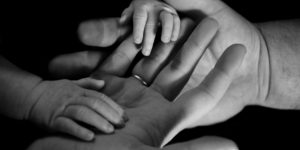Counseling for Alcohol Dependency
Christian Counselor Spokane
According to a report by the Substance Abuse and Mental Health Services Administration (2001), the social cost of substance abuse in 1995 was $276 billion. Alcohol abuse expenditures were $6.4 billion and drug abuse expenditures were $5.5 for the year 1995.
 For both alcohol and drug abuse, spending on treatment is roughly only five percent of the total costs to society for these disorders. Men tend to have a higher rate of current illicit drug use than women (7.7 percent vs. 5.0 percent).
For both alcohol and drug abuse, spending on treatment is roughly only five percent of the total costs to society for these disorders. Men tend to have a higher rate of current illicit drug use than women (7.7 percent vs. 5.0 percent).
Approximately 2.1 million youths age 12 to 17 used inhalants at some time in their lives as of the year 2000 and 3.9 percent used glue, shoe polish, or Toluene, and 3.3 used gasoline or lighter fluid during the same year. Among youths who were considered ‘heavy drinkers’ in the year 2000, 65.5 percent were also currently using illicit drugs.
Of the 11.8 million adult illicit drug users in the year 2000, 9.1 million (77 percent) were employed full or part time. An estimated 7 million people reported driving under the influence of drugs and/or alcohol at some time in the past year.
In the aforementioned study, almost half of Americans aged 12 and older reported current use of alcohol, which translates to roughly 104 million people. There were an estimated 6.6 million binge drinkers and 2.1 million heavy drinkers among the population of ages 12 to 20 in the year 2000. An estimated 65.5 million Americans aged 12 and older reported use of tobacco in 2000.
According to the Schneider Institute for Health Policy (2001), it is difficult to estimate the total cost of substance abuse due to hidden costs such as costs of medical care for related illnesses (e.g. cirrhosis, cancer, heart disease, traffic accidents), productivity losses caused by premature death, and impaired ability to perform typical activities at the workplace. Other hidden costs include crime and destruction of property.
The total cost to America for alcohol abuse is estimated to have been $99 billion in 1990. Productivity losses as well as premature deaths constitute 34 percent of total costs and productivity losses related to illness resulting in inability to work accounted for 37 percent of this total. Eleven percent represents direct costs to the health care system with another two percent related to the custodial care of those with fetal alcohol syndrome.
The cost of drug abuse was $67 billion in 1990 and over two-thirds of the total costs of drug abuse are accounted from by other costs, mostly related to losses from crime and incarceration. The costs associated with AIDS represent almost 10 percent of the total and this is anticipated to increase, as drug abuse exacerbates the AIDS epidemic.
Deaths and illness account for 17 percent and medical costs less than five percent. The costs for tobacco smoking were $72 billion for the year 1990 and premature deaths represented the largest component (63 percent). Direct medical costs to the health care system constituted 28 percent for the same year.
In review, while researchers struggle with precise ways to measure the impact of substance abuse on society, they agree that the impact is substantial and grows unabated, with increasing levels of hidden costs for the criminal justice system, healthcare system, families, and the workplace.
 For the most part, the major impact of alcohol abuse relates to productivity losses associated with illness, death, and crime plays the major role in drug-related costs. Premature deaths constitute the most significant losses for nicotine abuse. Researchers also agree that all substance abuse problems and their vicissitudes are preventable. (Potter, 2013).
For the most part, the major impact of alcohol abuse relates to productivity losses associated with illness, death, and crime plays the major role in drug-related costs. Premature deaths constitute the most significant losses for nicotine abuse. Researchers also agree that all substance abuse problems and their vicissitudes are preventable. (Potter, 2013).
Counseling for alcohol dependency is not just for the addict. Alcoholism affects every family member, so counseling is a good choice for each person in contact with the addict. If you have a loved one who is addicted to alcohol, you deal with many frustrations and fears every day. Alcoholism is a disease that affects the addict and the entire family, and every family member plays a role in the alcoholic’s behavior.
Alcohol addiction creates complex issues within the family. It’s common for family members to be too close to the problem to know what needs to be done. The good news is that as family members get help for themselves, the situation can improve dramatically. Whether the addict chooses to get help or not, you can receive healing as a family member through alcohol counseling.
Alcohol Dependency
It can be helpful for members of the family to learn about alcohol dependency in their effort to understand what alcoholism looks like. You must recognize the significant impacts of addiction to heal from this challenging problem. Alcoholism is a progressive disease, and it slowly destroys the addict and his or her family.
There are three major stages of alcoholism. the first stage is when someone drinks beyond daily recommended limits. This is one drink for women or two drinks for men. Often this type of alcohol dependence starts as binge drinking on weekends or holidays, then gradually turns into a daily habit.
The second stage of alcohol dependence is when the addict must take in more alcohol before feeling its effects. Over time, the body builds up a tolerance against alcohol. The higher the tolerance, the more it will take for the addict to act drunk. At this stage, an addict may function at high levels even if their blood alcohol level is over the legal limit. Daily drinking habits may begin to interfere with relationships, school, or work at this stage.
The third stage of alcohol dependence is when the addict’s body starts breaking down because it can no longer tolerate the heavy load of daily alcohol consumption. Many severe conditions result from long-term alcohol abuse, including heart disease, stroke, metabolic syndrome, diabetes, cirrhosis of the liver, kidney failure, and more life-threatening conditions.
It often takes years for an addict to reach the final stages of alcohol dependence. However, family members are negatively impacted by the addict’s drinking at every stage. It’s common for alcoholics to resist getting help because he or she is entrenched in denial. However, family members can start seeking help for themselves in order to change the situation.
Alcoholic Families
Family members unwittingly play roles in an alcoholic family. Each one unknowingly enables the drinker’s behavior and prolongs the dysfunction. Though family members are usually not aware of these dynamics, they place a heavy burden on each person’s well-being. Family members might suffer from anger, anxiety, depression, and other negative emotions and behaviors due to the alcoholic’s behavior.
 As a family member, you may be able to force the addict to face the facts about the addiction when you set appropriate boundaries against toxic behaviors. For example, if you stop making excuses for the addict because he is too drunk to work, the addict may experience censure or job loss as a consequence.
As a family member, you may be able to force the addict to face the facts about the addiction when you set appropriate boundaries against toxic behaviors. For example, if you stop making excuses for the addict because he is too drunk to work, the addict may experience censure or job loss as a consequence.
Another example is refusing to clean up the mess after the addict gets sick and making them do it when they wake up. These boundaries can help your addict take responsibility for their actions and start seeing how their actions affect people in the family.
As the level of alcohol dependence increases, so will the addict’s guilt and shame. However, the addict is unlikely to express those feelings appropriately. Instead, addicts commonly project their guilt and shame onto family members in the form of criticism or anger.
If you are a regular recipient of an addict’s verbal and emotional abuse, your self-worth may be negatively impacted. You can strengthen your resolve and learn ways to cope and set boundaries by seeking a counselor’s help.
Emotional Problems in Alcoholic Families
Loved ones of alcoholics deal with fear every day. You might worry that your alcoholic will overdose, lose their job, get injured, get arrested, lose their driving privileges, act out physically or sexually, or hurt someone else while they are drunk.
As the spouse of an alcoholic, you might fear that your children will become addicts just like their parents. You might worry that people in your extended family, community, or church will find out the truth about your problems. these fears can paralyze you, but God wants to set you free.
When you seek help from a caring Christian counselor you can unburden yourself from these fears. A counselor will guide you along the right steps can alcohol counseling. Though the addict in your family may refuse to get treatment, you can find freedom and hope by attending regular counseling sessions. Your program of treatment will hold practical strategies for changing your thoughts and behaviors, even though your addict may resist the changes.
Alcohol Dependency Counseling for Families
There is a much higher chance for a family’s total recovery when every family member receives counseling. For example, if a mother is an alcoholic, the father and children need to attend counseling sessions to heal, whether the mother decides to attend or not. While this approach may seem unnatural to you since the addict is the one who really needs the help, it is often the key to changes that will last.
The minute that family members reach out for alcohol counseling, the addict knows that their days of the same extreme and addictive patterns are numbered. Innately, the addict knows they will no longer be in charge of all the family dynamics, and they will face external pressure to make changes.
 This healthy pressure from family members who are seeking alcohol counseling can start to reverse dysfunctional patterns of behavior and create an opportunity for a breakthrough.
This healthy pressure from family members who are seeking alcohol counseling can start to reverse dysfunctional patterns of behavior and create an opportunity for a breakthrough.
However, you can’t expect most addicts to give up without a fight. As you get stronger by receiving therapy, the addict may double down on their efforts at control, blame, and criticism. Unless you are standing firm through regular meetings with your therapist, you could easily fall back into your old patterns of enabling, denial, and people-pleasing.
We often recommend that people who receive individual or family alcohol dependency counseling also attend group therapy. There are excellent groups such as Al-Anon, Alateen, or Celebrate Recovery, in which you meet with other people who are facing the same problems as yourself.
Regular meetings with these groups will boost your resolve and give you real hope for change. The longer you commit to receiving both counseling from a Christian therapist plus group counseling for alcoholic families, the greater your chances of overcoming alcohol dependency.
It’s important to understand that your loved one might not stop drinking just because you start getting alcohol counseling. However, the odds of his or her recovery dramatically improve when you take those first steps toward healing. A qualified counselor can also help you stage an intervention, which is a formal ultimatum for your addict to enter a treatment program. This step must only be taken with professional help, and we can assist you in this as needed.
Alcohol Dependency Recovery
Alcohol counseling is essential for the recovery of an addict and an addict’s family. The alcoholic has hope of recovery by addressing the roots of their behavior with a counselor’s help. But this is only effective when the alcoholic is ready to fully engage in a treatment program. You cannot force an addict to receive treatment, but you can make it available to them, and you can seek it for yourself.
We recommend that you first get help for yourself, then wait and see what differences may occur in your relationship with your addict. If you see signs that the alcoholic is ready and willing to get help, we can accommodate their needs through various treatment programs.
Full recovery from alcohol dependency normally means a total life overhaul. Alcoholics must establish different social patterns and place guards against triggers for drinking. They must also find healthier ways to handle their guilt, shame, and self-hatred.
The process of recovery for alcoholics can take years before they reach full sobriety. That’s why it’s so important that you get yourself the help you deserve now, so you can be healthy no matter what choices the addict makes.
If you are ready to take the first step in your own recovery from the effects of alcohol, reach out to us today. We’re ready to help you on a new journey toward healing and freedom.
Potter, B. (2013). Elements of self-destruction. London: Karnac Books.
“Dandelion,” courtesy of Aleksandr Ledogorov, unsplash.com, CC0 License “Balance” Courtesy of Deniz Altindas, Unsplash.com, CC0 License; “Greeting the Aurora Borealis”, Courtesy of Joshua Earle, Unsplash.com, CC0 License; “Greeting the Sun”, Courtesy of Wesley Eland, Unsplash.com, CC0 License





